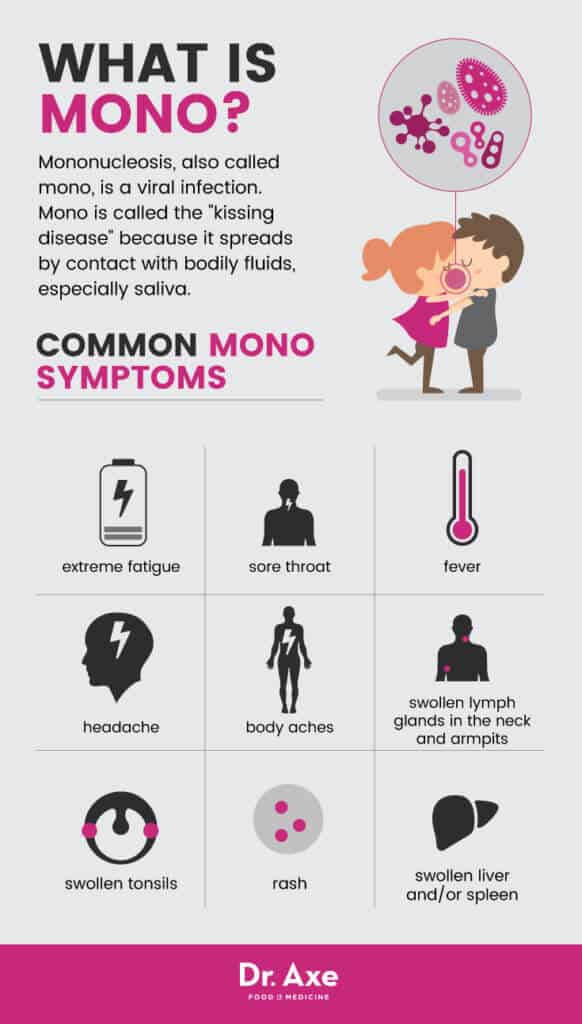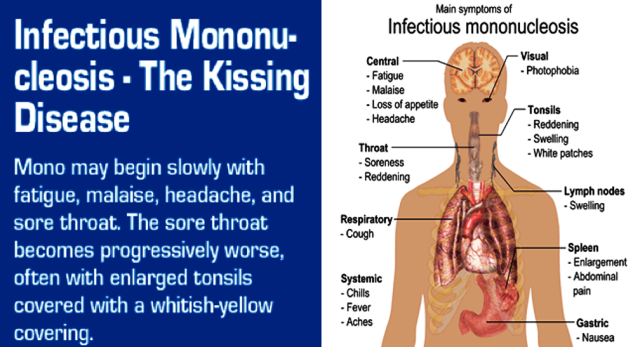
Most people who have mono will recover within two to four weeks with no lasting effects.

In some cases, the virus can also affect other organs, such as the liver or spleen. This will cause an increase in the number of these cells in your bloodstream. If you have mono, the EBV will infect your lymphocytes – a type of white blood cell. It’s believed that mono occurs when the body’s immune system is unable to fight off the virus. However, most people who are infected with EBV don’t develop any symptoms. This virus is very common – it’s estimated that up to 95% of adults have been infected with EBV at some point in their lives. Mono is caused by the Epstein-Barr virus, which is a type of herpes virus.

The incubation period for mono is 30 to 50 days, which means it can take up to two months for symptoms to appear after exposure to the virus. This virus is most commonly spread through contact with saliva, which is why it is often referred to as “kissing disease.” Mono can also be spread through blood transfusions, organ transplants and sharing straws or utensils with someone who has the virus. Infectious mononucleosis, or mono, is a contagious disease that is caused by the Epstein-Barr virus (EBV). Finally, we’ll tell you about the benefits of using University Urgent Care for mono treatment. We’ll also discuss why this disease is so prevalent among young people and advise parents on what to do if their teen contracts mono. In this blog post, we will answer the question “what is mono?” and provide information on symptoms, treatment and when to visit urgent care. Mono, or infectious mononucleosis, is a disease that is caused by the Epstein-Barr virus and is most commonly seen in teenagers and young adults. It's the best way to keep germs at bay.If you’re like most people, you’ve never heard of mono until one of your friends or family members contracts it. That's why doctors urge everyone to wash their hands well and often. Because EBV is so sneaky, infections are common. The bottom line is that it's hard to prevent mono from spreading.

So there's a very small chance that people who have had mono in the past can pass it to others, even when they feel OK. That person might not feel ill or show any mono symptoms, but can spread the virus to other people. Sometimes the dormant virus can "wake up" and find its way into a person's saliva (spit). Then, the virus stays dormant (inactive) in the body for the rest of a person's life. Health experts aren't sure how long people with mono stay contagious after symptoms are gone, but it seems they can spread the infection for months after that. People are definitely contagious while they have symptoms, which can last 2–4 weeks or even longer. In fact, most people have been infected with EBV by the time they reach adulthood. So they may not know they have been infected, but they can still pass it to others. To make things even more confusing, some people can carry the virus without ever getting any mono symptoms. It takes a while for mono symptoms (like tiredness, fever, muscle aches, headache, or sore throat) to show up - about 1–2 months, in fact. But they may not know that they have the virus. People who have mono can be contagious from the time they first become infected. Mono, or mononucleosis, usually is caused by an infection with the Epstein-Barr virus (EBV). But the virus can surface from time to time and risk infecting someone else. If you get mono, the virus stays in your body for life. The way mono works in the body is tricky, so lots of people are confused about how long it is contagious.


 0 kommentar(er)
0 kommentar(er)
